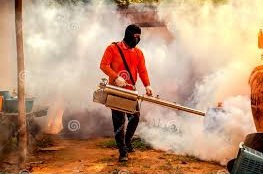TIME TO WATCH OUT FOR COVID-19 CO-INFECTIONS, MATTER OF CONCERN AS THE NUMBERS INCREASE WITH THE ONSET OF WINTER
The onset of winter brings with itself co-infections of COVID-19 with diseases like dengue, malaria, seasonal influenza (H1N1), chikungunya, scrub typhus, leptospirosis, bacterial co-infections. Co-infection is a medical term when a person has two or more infections in their body at the same time. Both the illnesses are very different, have different treatments and it is important to know and acquire knowledge about both the diseases.

It has been seen that there is a sudden spike in covid 19 co-infection, where one disease enhances the rate of severity of the other disease. However false positives are very common in co-infection cases that creates challenges in diagnosis. A large number of dengue cases are being reported recently. Most hospitals have limited resources to deal with Covid19 and the addition of another disease can pose serious public health challenge.
Things become worse as both have overlapping laboratory parameters and primary clinical presentations and this makes it difficult to differentiate the symptoms of the two diseases. Doctors are quite concerned, as the outbreak of another disease will burden the health system even more. Another reason of concern apart from diagnostic challenges is "limited experience" in treating and dealing with such situation.
Elaborating on the covid19 co-infections, Dr Puneet Khanna, Head of Department and Consultant - Respiratory Medicine, HCMCT Manipal Hospitals, Dwarka, Delhi says that ,"The ongoing pandemic has become a major global health threat and has received worldwide attention. Research suggests that rates of COVID-19 co-infections with other respiratory pathogens are 21%, higher than previously thought, suggesting that identification of another pathogen may not rule out the presence of the novel coronavirus. Secondary bacterial infections have been shown as a major risk factor for adverse Covid-19 outcomes. Molecular diagnostic solutions that are used to detect the pathogen's DNA are important to understand the early response to the antibiotic treatment regime for secondary bacterial infections to prevent fatal outcomes."
"The Ministry of Health has given a list of approaches to diagnose suspected co-infection which include a high index of suspicion for epidemic prone diseases that exist in particular regions during monsoon and post-monsoon seasons. Additionally, moderate or severe cases of Covid-19 which do not respond to treatment, in such cases bacterial co-infections must be suspected", Dr Puneet further added.
"Other than bacterial co-infections, some cities are witnessing a rise in co-infection of dengue and Covid-19, this combination could enhance the severity of both diseases. While most cases of co-infection of Covid-19 and dengue are asymptomatic, there is a possibility that one disease might enhance the severity of the other. There exists a risk of possible co-infection and co-epidemics in dengue-endemic countries where COVID‐19 and dengue disease are coexisting, and the viruses are circulating", emphasized Dr Puneet.
Earlier covid and now the risk of co-infections. Frequent fumigation and usage of mosquito repellent can to some extent curb diseases like dengue and malaria. It is time to be a bit more cautious and take informed actions. Carelessness and negligence will not only endanger more lives but also the people in our close proximity.
